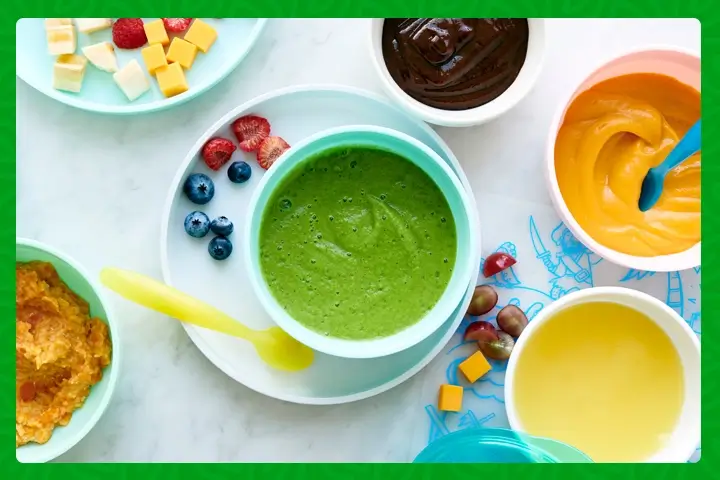
In a startling revelation, a recent study conducted by the Environmental Working Group (EWG) has uncovered a disconcerting truth – nearly 40% of conventional baby food products contain harmful pesticides. The research, scrutinizing 73 baby food products, discovered at least one pesticide in 22 of them, posing a significant health risk to our most vulnerable consumers – babies.
Organic Oasis: A Haven from Harmful Chemicals
What sets off alarm bells is the stark contrast between conventional and organic baby food. Astonishingly, none of the organic products sampled in the survey harbored these toxic chemicals. The Environmental Working Group’s findings underscore the urgency of reconsidering the sources of our baby’s nourishment.
Perils of Pesticides: A Threat to Tiny Tummies
The pesticides identified in the study, including the notorious acetamiprid, known for its harmful impact on both bees and humans, raise serious concerns. Captan, linked to cancer, and fludioxonil, suspected to harm fetal development and disrupt hormones, were also among the alarming discoveries.
Fruits in Peril: Apple Products Top the List
The study reveals that apple-based products are more likely to carry high levels of pesticide residue. Blueberries, pears, and strawberries are also among the culprits, consistently exhibiting elevated pesticide levels. The need for a critical examination of our baby’s diet becomes evident.
Expert Insights: Navigating the Pesticide Predicament
Claudine Umulisa, a registered nutritionist and dietician at Nutri-Sante Rwanda, sheds light on the pervasive nature of pesticides in agriculture. She emphasizes that babies, with their developing systems, are particularly vulnerable to the health risks posed by these chemicals.
While Umulisa acknowledges the concern about pesticide residues in baby food, she advocates for a balanced approach. She suggests practical steps to minimize exposure, such as washing and peeling fruits and vegetables and opting for locally grown produce. Her advice extends to choosing organic options, known for containing lower levels of pesticides.
Empowering Parents: Strategies to Reduce Pesticide Residues
For parents concerned about pesticide exposure, Umulisa provides actionable steps. Washing and peeling fruits and vegetables, removing outer leaves, and choosing locally grown and in-season produce are practical measures to safeguard little ones. Soaking and rinsing harder-to-wash foods further contribute to reducing pesticide residues.
A Call to Action: Choosing Health over Harm
In the face of these alarming findings, Umulisa issues a call to action. Despite the presence of pesticides, she emphasizes the vital role of fruits and vegetables in a baby’s diet. She encourages parents to make informed choices, advocating for organic options when feasible and ensuring thorough washing and peeling practices.
As we navigate the complex landscape of baby nutrition, the study by the Environmental Working Group serves as a wake-up call. It prompts us to scrutinize, choose wisely, and advocate for a food environment that nurtures the health and well-being of our little ones. In the quest for safe and wholesome nourishment, every step counts.
Source: The New Times, written by Joan Mbabazi
Stay updated with the latest farming tips and agriculture industry news from Africa by subscribing to our newsletter. Don’t miss out on valuable insights and updates. Follow us on Twitter, LinkedIn, and Facebook to join our farming community and stay connected with us.



















